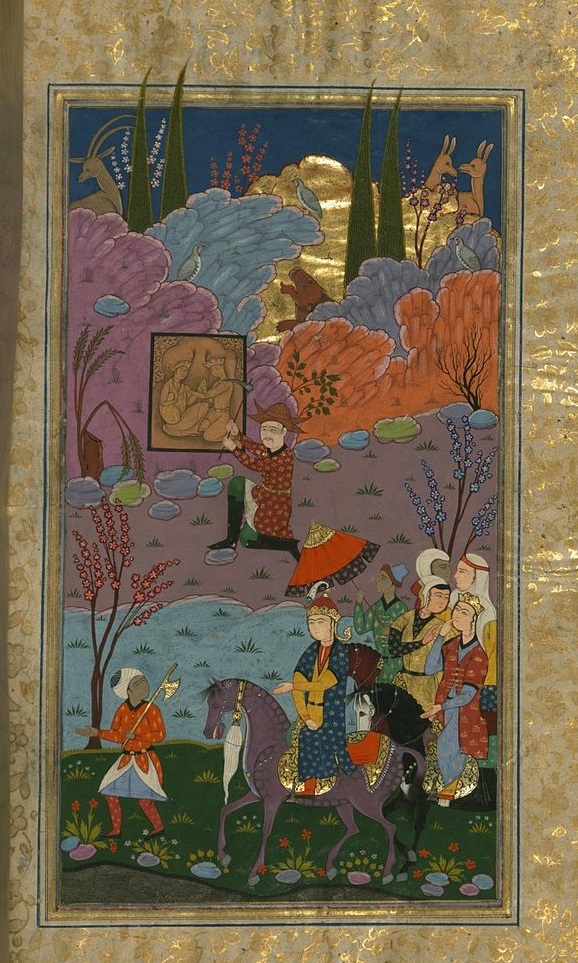FWP:
SETS == IDIOMS
Formally speaking, this is a second opening-verse to the ghazal. It is thus a kind of showing off, since the poet voluntarily does for a second time the more difficult task (of using the rhyming elements at the end of both lines) that he's only expected to do once.
And appropriately to the occasion, this is a self-consciously 'clever' verse, one based on two different idioms involving feet. The one in the first line suggests protective love, sorrow, and compassion, as Nazm explains; the one in the second line is equally apposite (see the definition above). As usual with Ghalib, both also make interpretive sense if read with their literal meanings.
For further discussion of Farhad, see {1,2}.

Nazm:
At someone's difficulty, in an ardor of love they say, 'alas! I would fall at his/her feet!' [hai hai maiñ us ke pāñv paṛūñ], and this is a very idiomatic phrase. And it's a well-known thing that people fall at someone's feet when pleading. In this verse Mirza used the word haihāt as a ẓilʿa , but what choice did he have? The line was one syllable short. (130)
== Nazm page 130